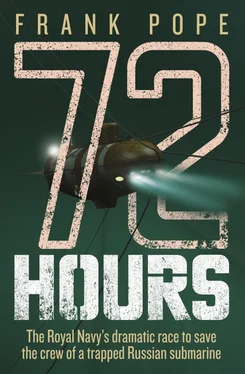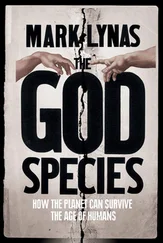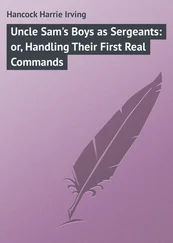Estimates of how much breathable air had remained on AS-28 also changed dramatically soon after the men had reached hospital. Initially, they had said they’d thought death was four hours away, perhaps six. But when Captain Lepetyukha officially announced that there was at least 36 hours of oxygen remaining on AS-28 , the rest of the crew said the same.
By silencing the crew of AS-28, the quest to quell the raging media interest in the story had started in earnest. It wasn’t just the sailors who were muzzled. Local journalists were prevented from meeting foreign reporters to stop them from passing on inconvenient details.
Yelena Milachevskaya’s emotional outbursts stood in stark contrast to the continued silence of the wives of the other submariners. Tatiana Lepetuykha and two of the other wives even went to visit Yelena after the rescue to try to talk her into quietening down. Veiled threats still hung in the air. ‘You’ll wreck your husband’s career if you don’t quieten down,’ the wives whispered to her, as though in confidence.
But Yelena was having none of it. To her, it was all part of a bigger plot to incriminate her husband. ‘You’ll see, they will hold my husband to blame, say it’s because he is young and inexperienced,’ she told Guzel Latypova and other journalists. ‘But Slava is a virtuoso at the controls of that craft. He knows the Priz like the back of his hand and couldn’t have made a mistake.’
Yelena insisted on refuting Russian attempts to claim a role in the rescue. ‘Our husbands were saved by us, the wives, and by you, the press, including the foreign press. I am grateful to the British and the journalists – they saved my husband.’
She was right. Whoever it was that called Guzel Latypova’s radio show on the evening of 4 August had accelerated the Russian Navy’s response to the accident. If it had remained a Naval secret, even if only until the following morning, rescue would have come too late. In celebration of Latypova’s role, Yelena and Slava Milachevsky asked her to be the godmother of their two girls, to which the journalist agreed.
Yelena’s forthrightness appeared to be punished. After her husband’s long stay in hospital, Slava was sent to a sanatorium to continue his ‘convalescence’. Once recovered, he was immediately sent to Vladivostok to watch over the submersible. After several months, AS-28 was sent to Nizhny Novgorod by train. Slava was given a month at home, but was then sent 6,500 miles away to Nizhny to remain with the craft for the two years that it would take to repair and refurbish. While Yelena and the kids had to remain in Zavoyko, they would see Slava only once a year when he came home for leave.
Still, the wife of Vyacheslav Milachevsky had no regrets about speaking out. ‘I may have destroyed my husband’s career,’ she announced. ‘But I’ve saved the father of my children.’
The members of the UK team settled back into their normal lives, swathed in a warm glow of achievement and relief at having proved themselves and saved seven lives. Riches stepped back into the everyday routines suddenly free from the nagging sense of frustration with the hand that fate had dealt him, the ghosts laid to rest.
In Russia, the ripples from AS-28 were not as benign. On 4 September, less than a month after the rescue mission, the Commander-in-Chief of the Navy, Vladimir Kuroyedov, was fired by Putin. He’d survived the Kursk, the sinking of K-159 and the Navy Day damage to the Baltic flagship, but the AS-28 debacle finally brought him down.
His former Chief of Staff was appointed in his place, but Admiral Vladimir Masorin was under no illusions about the task he was being given. ‘I am not experiencing euphoria at being appointed Head of the Navy,’ he admitted with disarming honesty.
‘The Russian Federation Navy has the biggest submarine fleet in the world after the United States,’ he said, adding that thanks to a lack of resources Russia was ‘lagging behind perhaps not just a little but rather a lot’.
‘One thing is clear. To continue in the condition which we are in and do nothing is simply not possible,’ he concluded.
Captain 2nd Rank Novikov, commander of AS-28 ’s mothership, the Georgy Kozmin, was relieved of command as the US Assistant Naval attaché had foreseen, having been found guilty of negligence by the Pacific Fleet prosecutor’s office. Although later found innocent after a loyal campaign by colleagues, he has not returned to active command.
In October 2005, Vladimir Putin travelled to 10 Downing Street to visit the Prime Minister, Tony Blair for the first UK/Russian summit in some time. All of the team were invited along to meet the leaders. Stuart Gold, Pete Nuttall and Riches along with Captain Holloway and Squadron Leader Hewitt were ushered into the Pillared Drawing Room with their families and the rest of the team behind them, where Blair welcomed the Russian president, who then emerged and took position behind his own microphone stand. The body language of the two leaders made it clear they were men in the exploratory stage of striking up a friendship after a period of acrimony.
‘We in Russia remember vividly remarkable examples of outstanding heroism, demonstrated by the British seamen in the operation of the so-called Northern Convoys,’ he said, referring to the hardships endured by the Royal and Merchant Navies in taking essential war supplies to Northern Russia during the Second World War. ‘And I was pleased to note that even today you have made your contribution in substantially increasing, up-lifting, and deepening, and broadening our cooperation. In reality you have continued the traditions… in the relationship between our two countries…’
It was flattery to compare the 72-hour rescue mission to the heroism of the Arctic convoys that had kept Russia in the war against Hitler despite savage predation by the German submarine wolf-packs, but the sentiment touched everyone.
Putin then presented Gold, Nuttall and Riches the Order ‘For Naval Merits’, awarded for outstanding service in the Russian Navy. Squadron Leader Hewitt and Captain Holloway were both given the Order of Friendship. Originally the medal ceremony was slated to have been held at the Imperial War Museum, but the venue was changed to Downing Street. This, and the briefing that followed the medal ceremony to update the press on the achievements of two days of discussions held between the two leaders, left Riches feeling that Blair and Putin would not have been standing there together had it not been for their successful rescue.
For Holloway, Hewitt and Riches, the Russian medals presented a slight problem. To wear the foreign decorations alongside other medals on their uniforms they needed special permission from the Queen. Luckily Her Majesty was understanding, and gave her consent.
The next year Riches was to meet the Queen in person when she appointed him an Officer of the Order of the British Empire (OBE) and honoured Roger Chapman as a Commander of the Order of the British Empire (CBE). It was a big moment. He hadn’t realised how much he’d craved formal recognition for serving his country and the international community of submariners. He now felt as though he’d earned the right to be one of them again, and it felt good.
The spirit of harmony surrounding Putin’s visit to Downing Street soon deteriorated; 2005 turned out to be the zenith of the cooperative relationship between the two nations.
The first big crack appeared when a political enemy of the Russian government was apparently assassinated on British soil. On 1 November 2006, KGB officer-turned anti-Putin activist Alexander Litvinenko was poisoned while taking afternoon tea at a London hotel. He had been spiked with Polonium 210, a highly toxic and rare radioactive element that took three agonising weeks to kill him. British police named an ex-KGB man as the main suspect, but Russia refused to give him up to the UK authorities to face trial.
Читать дальше












